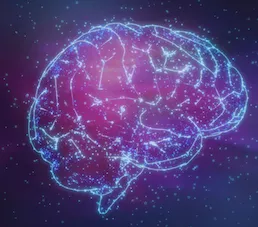
Over the last 10 years, a growing number of genes contributing to autism and other psychiatric disorders have been identified. The next challenge is to understand how these genes cause disease, and to develop therapeutic strategies. This complex problem called for an interdisciplinary systems biology approach. Together with colleagues at the UCSF Quantitative Biosciences Institute (QBI), the Kampmann Lab formed the Psychiatric Cell Map Initiative (PCMI), which was supported by a $18 million grant from the National Institutes of Health. The PCMI strategy was described in a recent paper in Cell.
The Kampmann lab will leverage its CRISPR interference approach in iPSC-derived neurons to model haploinsufficiency of genes associated with autism spectrum disorder. High-dimensional phenotypes such as single-cell RNA sequencing, as well as systematic mapping of genetic interactions in combinatorial perturbation screens will make it possible to uncover pathway relationships of disease genes and shared mechanisms, and to pinpoint therapeutic targets that correct disease-associated cellular phenotypes.
References:
- Willsey et al (2018) The Psychiatric Cell Map Initiative: A Convergent Systems Biological Approach to Illuminating Key Molecular Pathways in Neuropsychiatric Disorders. Cell 174:505. PMID: 30053424.
- Kampmann M (2017) A CRISPR Approach to Neurodegenerative Diseases. Trends Mol Med. 23:483 PMID: 28478951.
